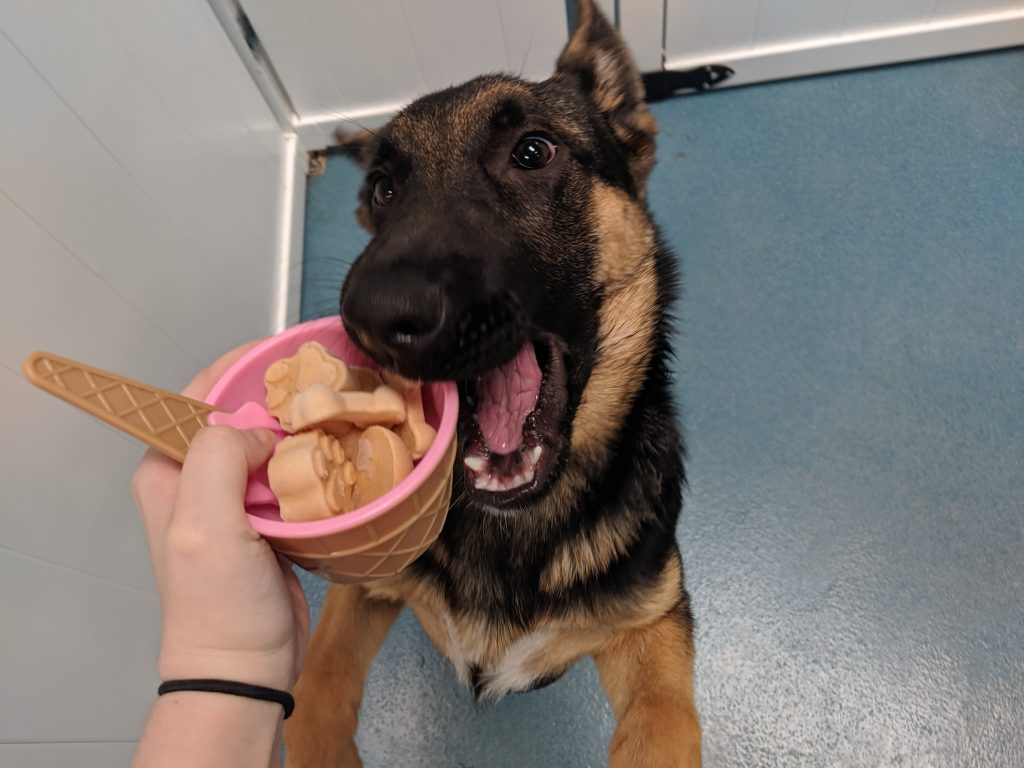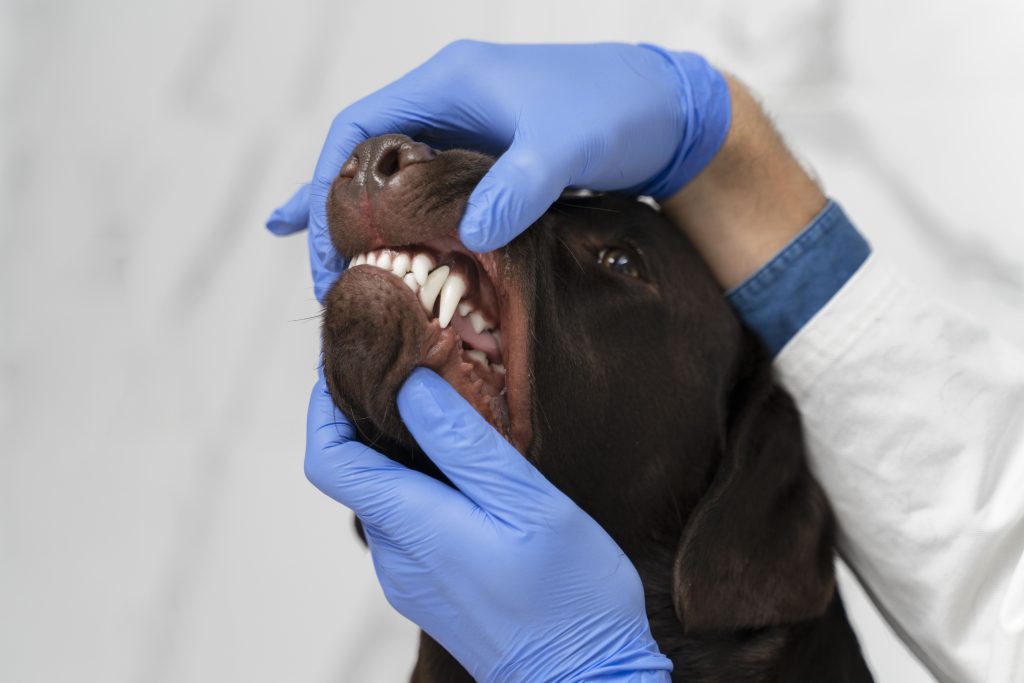A Guide to Managing Your Dog’s Allergies: Tips and Tricks for a Happier, Healthier Pup

Dogs can suffer from allergies, just like humans. Allergies in dogs are typically caused by environmental factors, such as pollen or dust, or by certain foods. Allergies may cause a range of symptoms, including itching, scratching, sneezing, and digestive issues. If your dog is suffering from allergies, it’s important to manage their symptoms to ensure they are comfortable and healthy.
Allergy-Free Pup: Expert Tips for a Happy, Healthy Dog
I. Understanding Dog Allergies

Types of Dog Allergies
Some common types of dog allergies include:
Environmental Allergies
These are caused by allergens in the environment, such as pollen, mold, or dust. Environmental allergies can cause a range of symptoms, including itching, redness, and inflammation of the skin, as well as respiratory issues like sneezing and coughing.
Food Allergies
Food allergies are triggered by a specific ingredient in a dog’s food. Common allergens in dog food include beef, chicken, dairy, and grains. Symptoms of food allergies can include digestive issues like vomiting and diarrhea, as well as skin irritation and itching.
Flea Allergies
These are caused by an allergic reaction to flea saliva. Dogs with flea allergies can experience intense itching and irritation, and may develop secondary skin infections as a result of excessive scratching and biting.
Contact Allergies
Certain materials, such as certain types of fabrics, cleaning products, or plants, can also make dogs react badly. Contact allergies can cause itching, redness, and inflammation of the skin, and can be difficult to diagnose and treat.
Allergic Reactions to Medications
Lastly, medications could also trigger an allergic reaction. Symptoms can include itching, hives, difficulty breathing, and even anaphylaxis, a life-threatening reaction that requires immediate medical attention.
Symptoms of Dog Allergies
- ltchy, red, or irritated skin
- Frequent scratching or biting at their skin
- Chronic ear infections
- Sneezing or coughing
- Runny nose
- Watery eyes
- Vomiting or diarrhea
- Lethargy
Diagnosis of Dog Allergies
If you suspect that your dog has allergies, the first step is to take them to a veterinarian. The vet may perform tests such as a skin or blood test to determine what your dog is allergic to. Once the allergen is identified, your vet can recommend an appropriate treatment plan.
Here’s why pet owners love and trust our doggy daycare!
II. Managing Dog Allergies

Environmental Management
The first step in managing your dog’s allergies is to visit the vet. A vet can diagnose your dog’s allergy and recommend a treatment plan. Your vet may also recommend allergy testing to determine the specific allergen that’s causing your dog’s reaction.
If your dog is suffering from food allergies, you may need to change their diet. Your vet can recommend a hypoallergenic diet that’s free from common allergens like beef, chicken, and wheat. Alternatively, you can try an elimination diet, where you gradually remove certain foods from your dog’s diet to determine the culprit.
Keeping the Environment Clean
Bathe your dog regularly with a mild, hypoallergenic shampoo to remove any allergens from their coat. You can also wipe down their paws and coat with a damp cloth after they’ve been outside to help remove pollen and other allergens.
Use Air Filters
Investing in an air purifier with a HEPA filter can help reduce allergens in your home. This can be especially helpful during allergy season when pollen and other allergens are in the air.
Removing Potential Allergens
In some cases, your veterinarian may recommend allergy medication to help manage your dog’s symptoms. Antihistamines, corticosteroids, and allergy shots are all options for treating allergies in dogs.
Keep an eye out for symptoms of allergies in your dog, such as excessive scratching, licking, or biting. If you notice any unusual symptoms, contact your veterinarian right away.
Controlling Indoor Air Quality
To keep your dog healthy, it’s important to maintain good indoor air quality. This can be done by using a HEPA air filter, keeping your home clean and well-ventilated, and avoiding the use of harsh chemicals or fragrances.
Dietary Management
Choosing the Right Dog Food
When choosing dog food, read the labels carefully. Look for ingredients that your dog is allergic to, and avoid foods that contain them. Some dogs have allergies to grains such as wheat, corn, and soy. Consider a grain-free diet for your dog if they have shown signs of a grain allergy.
Once you have chosen a new dog food, monitor your dog’s response to it. Look for signs of an allergic reaction, such as itching, swelling, or gastrointestinal issues.
Medication and Supplements
Antihistamines
There are several medications and supplements that can help manage your dog’s allergies, including antihistamines. Antihistamines work by blocking the action of histamine, which is released in response to an allergen and causes symptoms like itching and inflammation
Steroids
Your vet may prescribe medication to help manage your dog’s allergies. Antihistamines, corticosteroids, and immune modulators are commonly used to treat allergies in dogs. Supplements like omega-3 fatty acids and probiotics can help support your dog’s immune system and reduce inflammation associated with allergies.
Allergy Shots
The first step in managing your dog’s allergies is to identify the cause of the allergy. Work with your veterinarian to determine the underlying cause of your dog’s allergies. Once you have identified the cause of your dog’s allergies, you can take steps to minimize their exposure to the allergen.
Give your canine companion the best doggy daycare experience they’ve ever had – they deserve it!
III. Tips and Tricks for Managing Dog Allergies

Regular Grooming
Look for a shampoo that is specifically designed for dogs with allergies. These shampoos are typically free of harsh chemicals and fragrances that can irritate your dog’s skin. After shampooing your dog, be sure to rinse them thoroughly to remove all traces of shampoo. Any leftover shampoo can cause irritation and make their allergies worse.
Use a mild, hypoallergenic shampoo and rinse thoroughly. Additionally, brushing and combing your dog’s coat can help remove allergens and prevent mats and tangles. Use a comb with widely spaced teeth and a brush with soft bristles.
Check out this quick read on dog boarding!
Trimming Hair and Nails
Long hair can trap allergens, so keeping your dog’s hair short can reduce their exposure. Be careful not to trim their hair too short, as this can also lead to skin irritation. Keeping their nails short can reduce the damage they can do to their skin when they scratch.
Exercise and Physical Activity
Exercise can help strengthen your dog’s immune system, making them more resilient to allergens. It increases blood flow to the skin, which can help improve skin health and reduce the severity of skin allergies.
Choosing the Right Activities
Pollen is a common allergen for dogs, so try to avoid outdoor activities during times of high pollen counts. Check the pollen count in your area and plan outdoor activities accordingly. If your dog has allergies to outdoor allergens, consider sticking to indoor activities, such as playing fetch indoors or doing some training exercises in your home.
Let the images of our furry friends’ smiling faces speak for themselves!
Regular Check-Ups with Your Vet

Your veterinarian may prescribe medication to help manage your dog’s allergy symptoms. It’s important to use these medications as directed to ensure that your dog gets the full benefit.
Bottom Line
Moreover, managing your dog’s allergies can be a challenging task, but it is essential to ensure your dog’s health and happiness. By identifying the cause of the allergies, keeping your home clean, considering a limited ingredient diet, using medications and supplements, and keeping your dog away from allergens, you can help manage your dog’s allergies effectively. Remember to always consult with your veterinarian for proper diagnosis and treatment.
At 24 Hour Dog Daycare, we prioritize the well-being of dogs in our care, with spacious play areas and private suites. Our trained staff is attentive to every dog’s body language and signals, ensuring a safe and happy environment.
Get in touch with us today. Your furry friend will be happiest in our care.
FAQs on Managing Your Dog’s Allergies
1. Can dogs develop allergies later in life?
Yes, dogs can develop allergies at any age.
2. How are food allergies diagnosed in dogs?
Your vet may recommend a food elimination trial to diagnose a food allergy in your dog. This involves feeding your dog a novel protein and carbohydrate source for several weeks to see if their symptoms improve. If they do, your vet will gradually reintroduce different foods to identify the offending ingredient.
3. Can I give my dog human allergy medication?
No, you should never give your dog human medication without consulting with your vet first. Some human medications can be toxic to dogs, and the dosage may be different.
4. Can allergies be cured in dogs?
Allergies cannot be cured, but they can be managed with appropriate treatment and management strategies.


